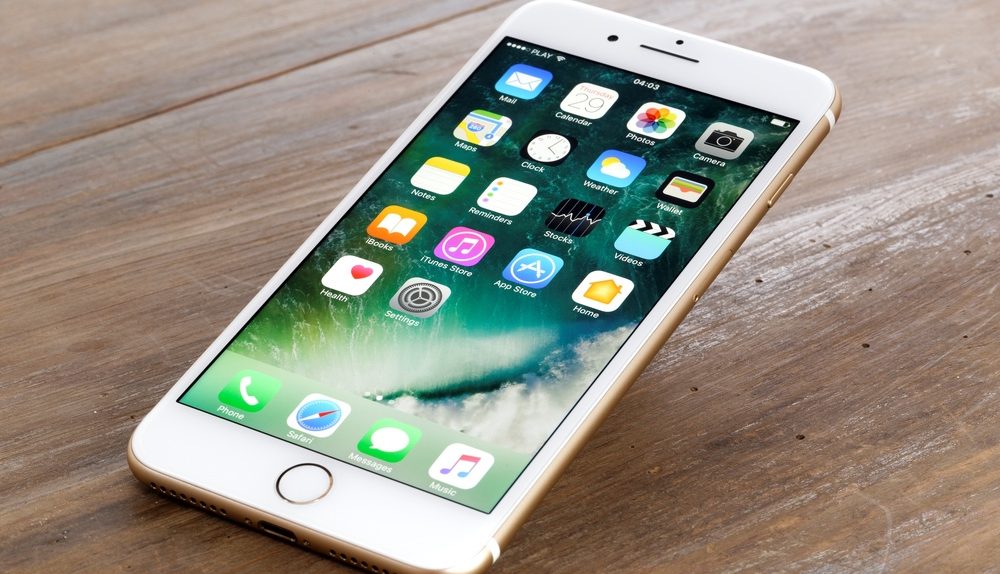Apple’s legal dispute with Qualcomm over iPhone royalty payments just got kicked up a notch. According to a report from Bloomberg, Qualcomm is planning to file a motion asking the International Trade Commission (ITC) to prevent Apple from importing the iPhone into the United States. Though not a household name, the ITC is a federal agency responsible for ensuring fair trade practices and, in turn, it holds the power to completely ban imports of certain products.
“Incensed over Apple Inc.’s decision to stop paying it billions of dollars in licensing fees for smartphone chips,” the report notes, “Qualcomm Inc. plans to retaliate by asking a U.S. trade agency to ban the imports of iPhones, according to a person familiar with the company’s strategy.”
As for the root of the dispute, Apple maintains that Qualcomm’s royalty demands are beyond excessive. Whereas Apple believes the royalty payments it owes Qualcomm should be strictly based on the value of technology provided, Qualcomm has been basing its royalty rates on the overall selling price of the iPhone itself.
There’s no denying that Qualcomm’s technology comprises an integral part of the iPhone, but Apple earlier this year claimed that Qualcomm wants to charge “Apple at least five times more in payments than all the other cellular patent licensors we have agreements with combined.” As a result, Apple began withholding upwards of $1 billion in royalty payments to Qualcomm, a move that eventually prompted Qualcomm to file a countersuit against Apple just a few weeks ago.
Promising to “vigorously defend” itself, Qualcomm general counsel Don Rosenberg added: “Over the last ten years, Apple has played a significant role in bringing the benefits of mobile technology to consumers with its popular products and services. But Apple could not have built the incredible iPhone franchise that has made it the most profitable company in the world, capturing over 90 percent of smartphone profits, without relying upon Qualcomm’s fundamental cellular technologies.”
Interestingly enough, Tim Cook addressed the company’s legal spat with Qualcomm during Apple’s earnings conference call this past Tuesday. When asked if Apple was worried about the possibility of Qualcomm witholding iPhone components or seeking an injunction against the iPhone, Tim Cook responded.
Anyone that has a standards-essential patent has a responsibility to offer it to everyone that would like it under what are called FRAND terms. FRAND stands for fair, reasonable, and non-discriminatory terms. That’s both the price and the business terms. Qualcomm has not made such an offer to Apple. And so I don’t believe that a – I don’t believe anyone is going to decide to enjoin the iPhone based on that. I think that there’s plenty of case law around that subject, but we shall see.
In terms of why we’re withholding royalties, you can’t pay something when there’s a dispute about the amount. You don’t know how much to pay. And so they think we owe some amount, we think we owe a different amount, and there hasn’t been a meeting of the minds there. And so at this point, we need the courts to decide that. Unless we are able to, over time, settle between us on some amount, but right now we’re depending upon the courts to do that. And so that is the thinking.
The reason that we’re pursuing this is that Qualcomm’s trying to charge Apple a percentage of the total iPhone value. And they do some really great work around standards-essential patents, but it’s one small part of what an iPhone is. It’s not – it has nothing do with the display or the Touch ID or a gazillion other innovations that Apple has done. And so we don’t think that’s right, and so we’re taking a principled stand on it. And we strongly believe we’re in the right, and I’m sure they believe that they are. And that’s what courts are for. And so we’ll let it go with that.
With insane amounts of money on the line, and with neither company seemingly willing to budge an inch, it will be extremely interesting to see how this all plays out.








